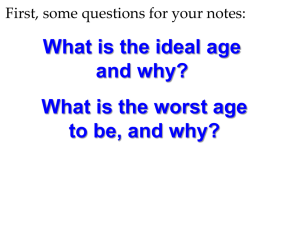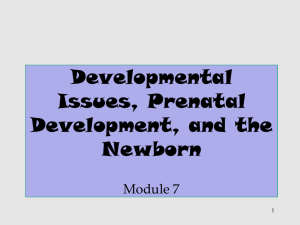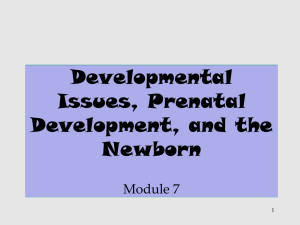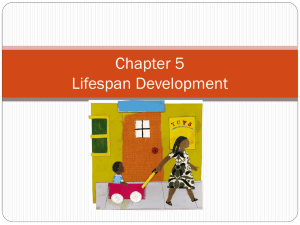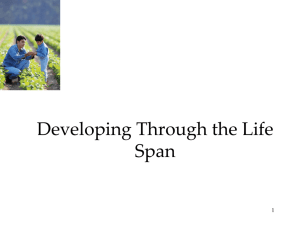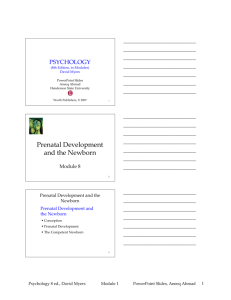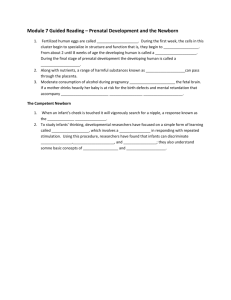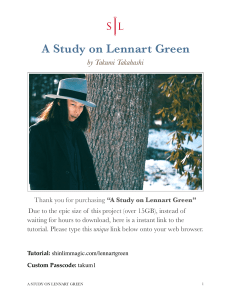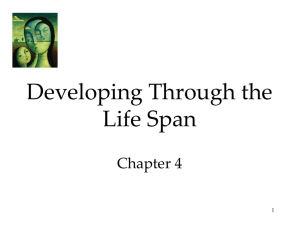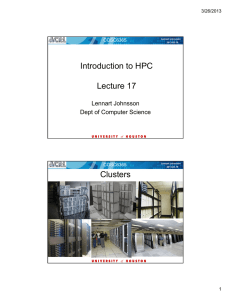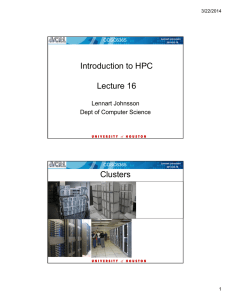Psychology David Myers
advertisement
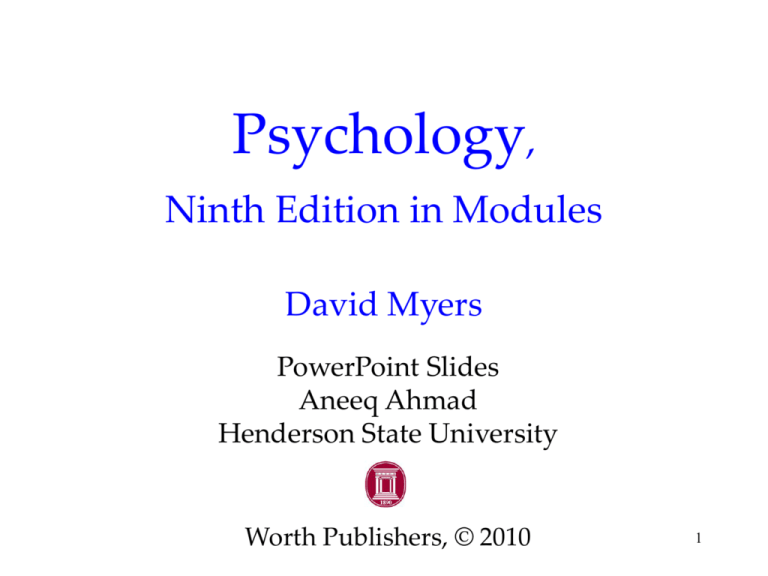
Psychology, Ninth Edition in Modules David Myers PowerPoint Slides Aneeq Ahmad Henderson State University Worth Publishers, © 2010 1 Developing Through the Life Span 2 Prenatal Development and the Newborn Conception Prenatal Development The Competent Newborn 3 Developmental Psychology Issue Nature/Nurture Continuity/Stages Stability/Change Details How do genetic inheritance (our nature) and experience (the nurture we receive) influence our behavior? Is development a gradual, continuous process or a sequence of separate stages? Do our early personality traits persist through life, or do we become different persons as we age. 4 Prenatal Development and the Newborn How, over time, did we come to be who we are? From zygote to birth, development progresses in an orderly, though fragile, sequence. 5 Conception A single sperm cell (male) penetrates the outer coating of the egg (female) and fuses to form one fertilized cell. Lennart Nilsson/ Albert Bonniers Publishing Company Lennart Nilsson/ Albert Bonniers Publishing Company 6 Prenatal Development A zygote is a fertilized egg with 100 cells that become increasingly diverse. At about 14 days the zygote turns into an embryo (a and b). Biophoto Associates/ Photo Researchers, Inc. Lennart Nilsson/ Albert Bonniers Publishing Company 7 Prenatal Development At 9 weeks, an embryo turns into a fetus (c and d). Teratogens are chemicals or viruses that can enter the placenta and harm the developing fetus. Lennart Nilsson/ Albert Bonniers Publishing Company Lennart Nilsson/ Albert Bonniers Publishing Company 8 The Competent Newborn Infants are born with reflexes that aid in survival, including rooting reflex which helps them locate food. 9 The Competent Newborn Offspring cries are important signals for parents to provide nourishment. In animals and humans such cries are quickly attended to and relieved. Lightscapes, Inc. Corbis Carl and Ann Purcell/ Corbis 10
